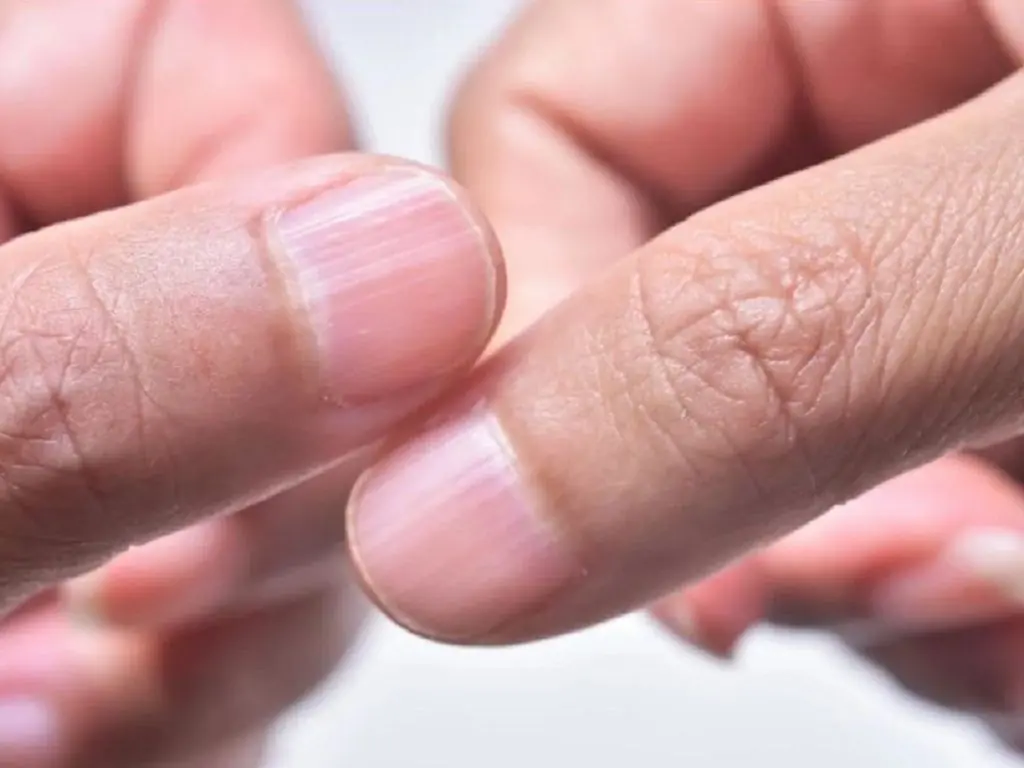
You should notice

Here are three sleeping habits you should eliminate if you want to maintain youthfulness and long-lasting health:
1. Frequently Staying Up Late
Staying up late regularly not only leads to fatigue but also accelerates aging and increases the risk of cardiovascular diseases. Research published in the European Heart Journal - Digital Health shows that those who tend to go to bed after midnight are 25% more likely to face heart-related risks.
Staying up late disrupts melatonin hormone production, causing an imbalance in the body’s biological rhythm and leading to high blood pressure. If this continues, the cardiovascular system weakens, increasing the risk of heart attacks or strokes. Additionally, staying up late can elevate stress, inflammation, and accelerate the aging process.
The ideal time to go to sleep to protect heart health is between 10 and 11 PM. This is the best period for the body to enter deep rest, reducing cardiovascular risks and enhancing sleep quality and immunity.
2. Irregular Sleep Hours
Many people mistakenly believe that sleeping 6-8 hours a night or catching up on sleep over the weekend can fix the effects of sleep deprivation. However, quality sleep requires at least 80% of sleep to be during the night, and maintaining a consistent sleep schedule is also crucial. According to a study published in the Sleep Health journal, those with irregular sleep habits may experience a biological age up to 9 months older than those who maintain a regular sleep schedule.
Going to bed late or frequently changing sleep hours not only disrupts the biological rhythm but also causes chronic stress for the body. The consequences include early aging and increased risks of cardiovascular diseases, diabetes, and memory loss. Therefore, it’s important to aim for consistent sleep and wake-up times, even on weekends.
3. Sleeping Too Much or Too Little
Both insufficient and excessive sleep can harm your health. A study from JAMA Network Open in 2021 found that maintaining about 7 hours of sleep per night can significantly reduce the risk of death from various causes, particularly cardiovascular diseases.
Insufficient sleep (less than 6 hours per night) can increase the risk of heart disease, diabetes, obesity, and weaken the immune system, as the body doesn’t have enough time to recover and balance hormones. On the other hand, excessive sleep (more than 9 hours per night) is also harmful; it can increase the risk of stroke, memory loss, and premature death. Both conditions disrupt the body’s biological rhythm, causing dysfunction, rapid aging, and reduced lifespan.
It’s also important not to sleep immediately after eating or showering. Create a comfortable, quiet, and dark space for sleep, and avoid using electronic devices or consuming stimulating drinks before bedtime.
News in the same category


10 symptoms of dia.betes that may show up in your feet

5 diseases that can cause stomach pain after eating - What your body may be trying to tell you?

30 Powerful Benefits of Sessile Joyweed (Alternanthera sessilis): A Traditional Plant with Remarkable Potential

Doctors warn: 6 types of food that can promote can.cer growth that people are unaware of

Why shouldn't you set the air conditioner to 26°C at night?

Are feet an "early warning sign" of cervical can:cer? Don't ignore these 4 situations

This is why some people always keep a lemon with them - it may help in unexpected situations

Don’t Ignore These 5 Symptoms at Night That Could Be Linked to Can.cer

Canadian Researchers Discover New Evidence That Vitamin D Shuts Down Cancer Cells

Warning: 6 vegetables that naturally contain to.xins

If you find a “Bleach” patch in your underwear - What it really means?

Lines on your nails could be a hidden health warning: What your body may be telling you?

20 Early Red Flags Your Body Uses to Warn You About Cancer

Why You Should Avoid Using Wet Wipes For Intimate Hygiene: An Expert Sheds Light

Eat 4 foods on an empty stomach in the morning to help clean the intestines, improve digestion, and prevent can.cer

Why should you stop eating tilapia right now? What you need to know before your next meal?

Noticing brown spots in your eyes? These causes may surprise you — and the solutions are simple

This is Why You Always Wake Up in the MIDDLE of the Night

Mini Stroke in People Over 40
News Post

You’ll Never Guess What Happens If You Sleep With Socks On

Stir-Fried Glass Noodles with Shrimp

Grilled Chicken Rice Bowl with Corn

10 symptoms of dia.betes that may show up in your feet

5 diseases that can cause stomach pain after eating - What your body may be trying to tell you?

Loaded Cheesy Bacon Fries

Cheesy Stuffed Beef Buns (Baked Meat & Cheese Rolls)

30 Powerful Benefits of Sessile Joyweed (Alternanthera sessilis): A Traditional Plant with Remarkable Potential

Doctors warn: 6 types of food that can promote can.cer growth that people are unaware of

Why shouldn't you set the air conditioner to 26°C at night?

9 out of 10 people store onions incorrectly: Here's why you shouldn't keep them in the fridge

Smart travel tip: Why you should toss a water bottle under your hotel bed?

Don't throw away your yellowed white shirts - try this soaking method to make them bright and as good as new

Are feet an "early warning sign" of cervical can:cer? Don't ignore these 4 situations

Different Green Juices to Reduce Be.lly Fat

This is why some people always keep a lemon with them - it may help in unexpected situations

Classic Baked Lasagna

Don’t Ignore These 5 Symptoms at Night That Could Be Linked to Can.cer

Canadian Researchers Discover New Evidence That Vitamin D Shuts Down Cancer Cells
